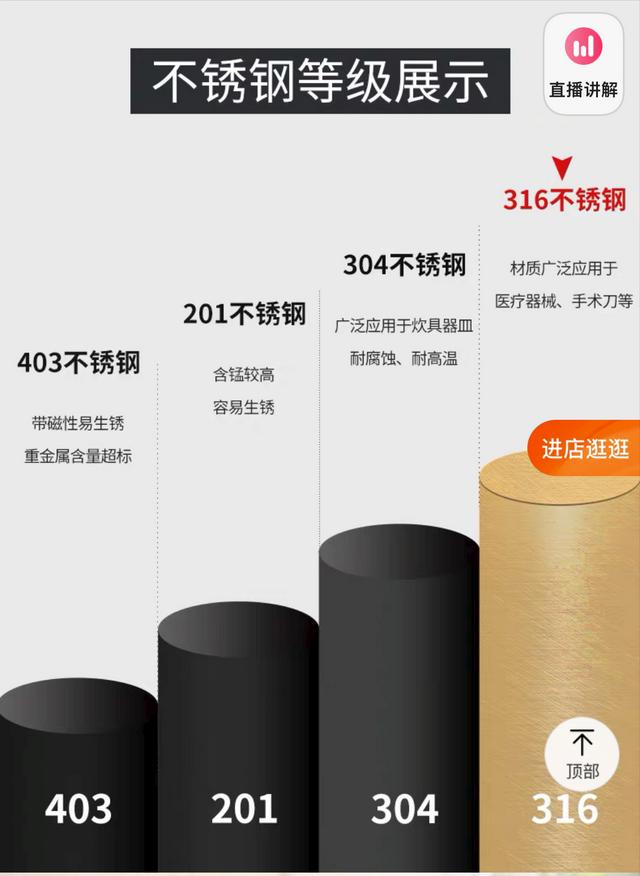高中英语语法填空常见题型(语法填空解题方法全总结)
一. 名词(1) 名词单复数,今天小编就来说说关于高中英语语法填空常见题型?下面更多详细答案一起来看看吧!

高中英语语法填空常见题型
一. 名词
(1) 名词单复数
① 如果需要变复数,文中一般有线索!
eg: The ____(student) are...
②常见的不可数名词:
furniture, luggage, baggage, information, homework, money, music,
news,advice, progress, work, change, food, joy, hair,
knowledge, paper, water, traffic, equipment
③名词不可裸奔原则:可数名词单数形式不能单独出现,要么前面加冠词,要么后面变复数!
I like the book. / I like books.
(2) 动词变名词
1) 同根词:introduce=>introduction(本质是名词,后面不加宾语)
I am reading the introduction (of the film).
2) 动名词:introduce=>introducing(本质是动作,后面要加宾语)
Introducing the film to you will be interesting.
3) the done:wound 伤 v. => the wounded 受伤的人
4) -er 动作发出者:trainer;interviewer
5) -ee 动作承受者:trainee;interviewee
(3) 名词所有格:
I need ten people to carry the _students'_(student) books.
二. 谓语动词
(1) 先看主被动:
①“看主被动,先名后动”
eg: “打”和“游戏”之间是主动还是被动? (被动)
eg: “我”和“教英语”之间是主动还是被动?(主动)
②被动: be/get done
③be done 中的“be”有时态变化!
(2) 再看时态:
1) 一般现在:常态“经常/真的/是...的/老”
eg: I eat supper. 我是吃晚饭的。
2) 一般过去:动作发生在过去,句子也在描述过去“曾经/当时/刚刚”
eg:I had supper at 6:00 pm. 我六点吃的晚饭。
3) 现在完成:动作发生在过去,句子却在描述现在“已经”
eg:I have had supper. 我吃过晚饭了。
4) 过去完成:发生在一个 did 之前!“之前/之前已经”
eg:I had learned 10000 words before I graduated from my university.
5) 完成进行:一直做一直做一直做一直做已经做了很长时间了还在做“一直”
eg:I have been doing my homework (for nearly 4 hours).
(3) 主谓一致:主语是单数,谓语也是单数;主语是复数,谓语也是复数。
1 The family ___ a big one.
此处的 family 指的是“一个集合”,看作单数,填 is;
2 The family ___ watching TV.
此处的 family 指的是“一堆元素”,看作复数,填 are。
三. 非谓语动词:
(1) 定义:一个句子中用到多个动词时保留一个作谓语其他统统变成非谓语。
(2) 用法:先看空格想表达啥意思,再选择相应的形式!
1) 做:doing (和谓语动词同时发生,主动)
He glanced at her, noting that though she was tiny, she seemed very well.
2)被做:done (完成, 和主语是被动关系)
Separated from other continents for millions of years, Australia has many animals and plants not found in any other country in the world.
3)要做去做还未做:to do
I have a lot of homework to do.
4)要被做:to be done
The question to be discussed at tomorrow’s meeting is very important.
5) 之前做/已经做:having done (先于谓语动词,主动)
Having finished his homework, he felt relaxed.
6) 之前被做:having been done (先于谓语东西,被动)
Having been told many times, he still repeated the same mistake.
7) 正在被做:being done (与谓语动词同时发生,被动)
Being repaired now, this classroom can’t be used.
(3) 使动词用法:interest=>使..感兴趣v.
1 interesting 令人感兴趣的 adj.
2 interested 感到感兴趣的 adj.
四. 形容词
(1) 形容词在哪儿用?
1 在名词前面或不定代词后面,作定语
2 在系动词后面,作表语
(2) 形容词考什么?
1 名词变形容词
1) -ful fruitful, meaningful, successful.
2) -less careless, aimless
2 动词变形容词
1) 变doing表“令人...” The story is moving.
2) 变done表“感到...” I am moved by the story.
3) 加able表“能...的”eatable可吃的adj./drinkable可喝的adj.
3 形容词比较级最高级
“碰到 as 选原级,碰到 than 选比较级,in/of/among 最高级”
五、副词
(1) 副词在哪儿用?
1 副词修饰动词
2 副词修饰整句
3 副词修饰其他形容词或副词
(2) 副词考什么?
1 形容词 ly=副词
2 副词的比较级最高级:碰到 as 选原级,碰到 than 选比较级,in/of/among 最高级。
(3) 修饰比较级: far,a bit, a little,rather, much,far, by far, a lot, any, even, slightly, a great deal of, still等
六、代词
完全看翻译!
(1) 我(主/宾)
(2) 我的(形容词/名词)
(3) 我自己 myself(反身代词:主语返回去说自己!) eg: I love myself.
七. 连词
(1) and/or/but/so的选择
(2) 名词性从句的引导词:
作名词用的从句,叫名词性从句; 包括主语从句/宾语从句/表语从句/同位语从句。
Lihua is beautiful.=> that Lihua is beautiful.
主:(That Lihua is beautiful) is true.
宾:We all know (that Lihua is beautiful).
表:The fact is (that Lihua is beautiful).
同:The fact (that Lihua is beautiful) is true.
{考点}
1 连词
1) that “确定的事儿” “说”
2) if/whether“不确定的事儿” “是否/与否”
I know (that you love me).
I don’t know (whether I love you).
if 只能引导及物动词的宾语从句和带有形式主语 it 的主语从句,且不跟 or not 连用;而 whether 都能引导,且特别喜欢和 or not 连用!!
I don’t know (_if/whether_ you will go).
I don't know (_whether_ you will go or not).
It puzzles me (_if/whether_ you love me).
It puzzles me (_whether_ you love me or not).
2 连接副词(问我的外号)“从句完整,填连词或副词!” ___ I love you.
1) when “...的那个时间”
2) where “...的那个地方”
3) why “...的那个原因”
4) how “怎么/多么/...的那个方式”
It depends on how we solve the problem.
It makes no difference where we shall have the meeting.
They couldn’t understand why I refused it.
I do not know when he will go.
3. 连接代词(俩人俩物)“从句不完整,填代词!!”____ love you.
1) who “...的那个人”(主/宾)
2) whom “...的那个人”(宾)
3) which “哪个”(有范围)
4) what “什么/...的那个东西” (没有范围)
I don’t know (_whom he likes).
It has not been decided yet who will preside over the meeting.
We are worrying about what we should do next.
She wants to know which is the best.
(3) 定语从句的引导词:“口诀法” {定义} 作定语的从句,叫定语从句——修饰名词
定从的世界里没有 what 和 how
{考点}
1 特殊关系词:直接靠翻译!
1) as“正如”(非限制性定语从句), 在限制性定语从句中,the same/such... as (固定句型)
2) whose“他的/他们的”,
3) why“... the reason ___ sb. do sth..” 表“某人做某事的原因”
2 关系代词:从句不完整,填代词;
who/whom/which/that“他/它们”
which“这件事”
口诀:逗号或介词后不用 that,其余都用 that;逗号后,人用 who,物用 which;介 词后,人用 whom,物用 which.
3 关系副词:从句完整,填副词
when“那会儿”修饰时间名词
where“在那儿”修饰地点名词
口诀:非时间即地点 (抽象名词 point, case, activity, situation, position, job, atmosphere, scene作先行词时,是抽象地点名词,关系词要用where)
I like the game (_where_ everyone is so friendly).
He got into a situation where it is hard to decide what is right and wrong.
(4) 状语从句的引导词:纯靠翻译
1. as if
2.as though
3 even if
4 even though
5 if only
6 only if ...
【三大从句大统一理论】
(1) 如果主句不完整,则从句是主从/宾从/表从;
(2) 如果主句完整,则从句是同从/定从/状从;
(3)如果从句不完整,则引导词填【代词】;
(4)如果从句完整,则引导词填【连词】或【副词】;
八,介词
基本上只考常见的“固定搭配”!
切记:介词后面的动词一律变成名词或动名词!
九. 冠词
(1) 翻译法
1 “一/个/一个”:a/an
2 “那个”:the
(2) 特指泛指分析法
1 特指:明确知道是哪个
2 泛指:随便哪个都行/一类中的一个
(3) 有the表具体,无the表抽象
1. in the bed 在床上;in bed 睡觉
2. at the table 在桌边;at table 在用餐
3. in the hospital 在医院里;in hospital 在住院
4. play football; play chess
5. play the piano
6. play pipa/ play erhu
7. in the universe 在宇宙中
8. in space 在太空里
9. in the space 表示在某一个具体的空间中
10. in front of 在...前面(外部)
11. in the front of 在...前面(内部)
,免责声明:本文仅代表文章作者的个人观点,与本站无关。其原创性、真实性以及文中陈述文字和内容未经本站证实,对本文以及其中全部或者部分内容文字的真实性、完整性和原创性本站不作任何保证或承诺,请读者仅作参考,并自行核实相关内容。文章投诉邮箱:anhduc.ph@yahoo.com






